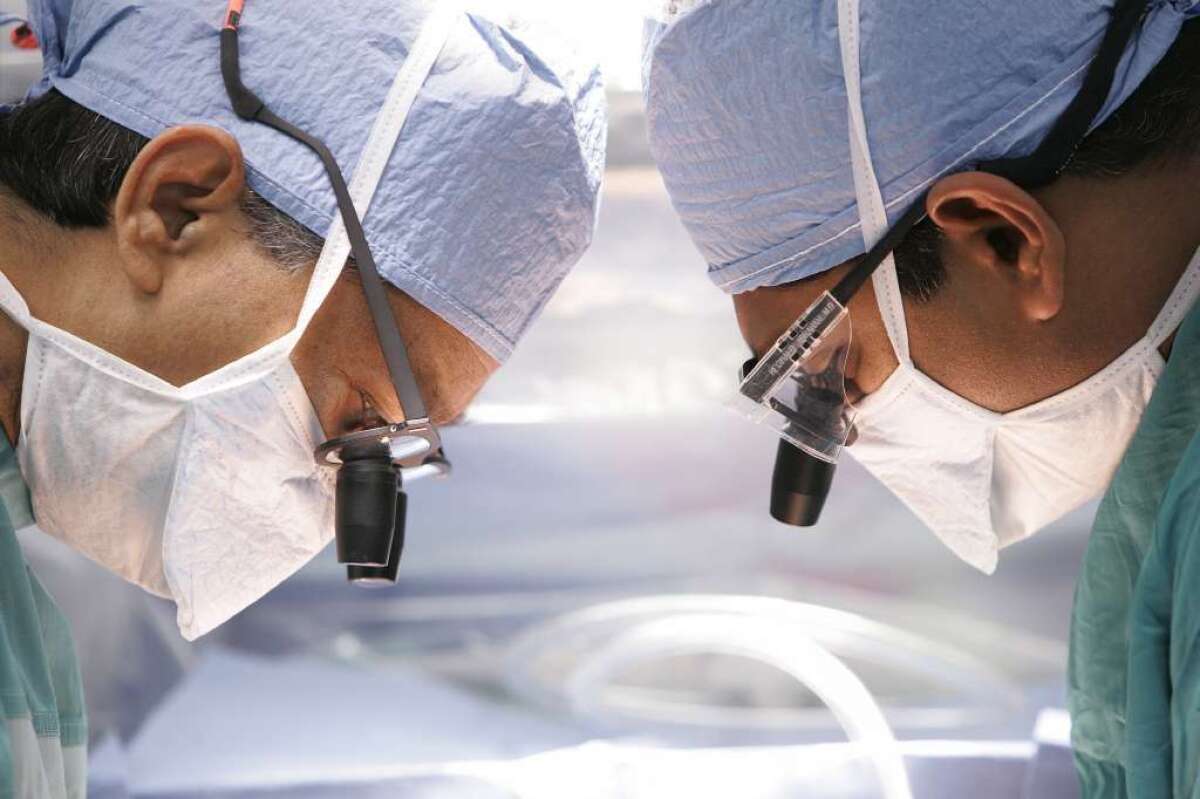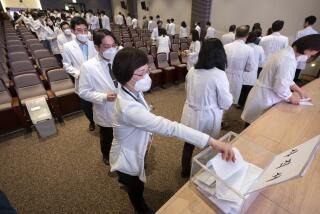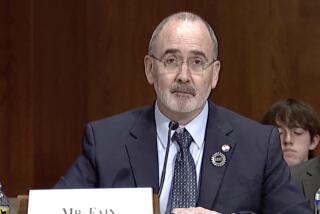Limiting hospital intern shifts may not cut errors, studies find

It’s been 15 years now, but Dr. Sanjay Desai remembers the brutal hours he worked as a young medical intern and how he struggled with fatigue while treating patients.
“There were days we were easily working 36 hours straight and you couldn’t remember how you got home — if you got home,” Desai said. “It wasn’t safe.”
Times have changed. Regulations now demand that teaching hospitals limit first-year trainees to 16-hour shifts. By reducing work hours, medical authorities reasoned, interns would get more sleep, suffer less fatigue and commit fewer mistakes.
But a pair of studies published Monday in JAMA Internal Medicine suggest this may not be the case. Researchers concluded that interns were making more mistakes and learning less after the shift restrictions.
The problem, according to researchers, was that interns were required to do the same amount of work but in fewer hours. Shorter shifts also require more patient “handoffs” from one doctor to another. Handoffs, previous studies have demonstrated, are a common source of medical errors.
“I was surprised,” said Dr. Srijan Sen, a University of Michigan Medical School psychiatrist and lead author of one of the studies. “It was clear that interns do not function optimally after working 24 hours in a row. So there was real hope that reducing the maximum shift length would help both interns and patients. However, our results suggest that the negative unintended consequences of the reforms may outweigh any positives.”
The studies no doubt will add fuel to the debate over duty hour reforms.
In 2003, the Accreditation Council for Graduate and Medical Education reduced the maximum shift length for first-year residents, or interns, to 30 hours from 36. In 2011, the council reduced it further to 16 hours. The changes marked an enormous break from the tradition of medical training: Beginning in the late 19th century, interns and residents were called “house staff” because they lived full time in their hospitals.
Sen and his colleagues surveyed more than 2,300 interns from 2009 to 2011 — a period that included the most recent shift change. Trainees were asked whether they were sleeping more, whether they felt depressed and how many serious medical errors they thought they had made.
“Despite the decrease in duty hours, there were no significant changes in hours slept, depressive symptoms or well-being,” the study found. “The percentage of interns who reported concern about making a serious medical error increased from 19.9% to 23.3%.”
According to Sen, about 50% of the mistakes were medication errors, 20% were missed diagnoses, 20% were incorrect treatment and 10% were surgical or procedural errors.
The second study used special wristwatches that track arm movement to determine the sleep patterns of 43 interns at Johns Hopkins Hospital in Baltimore. The study, which was done immediately before the 2011 rule change, compared a variety of work schedules involving new and old shift caps.
Desai, director of the Osler Medicine Training Program at Johns Hopkins University and lead study author, wrote that handoffs increased from three to as high as nine under the 16-hour shift rule — a 130% to 200% increase. Also, schedules that used interns for night shifts sharply reduced interactions between interns and teaching hospital staff.
“Patient safety is a highly complex science,” Desai said. “If duty hours are manipulated, other variables such as transitions of care are also affected.”
Both studies were not without shortcomings, said Dr. Christopher Landrigan, a pediatrics professor at Harvard Medical School who has studied the issue of intern sleep but was not involved in either paper. The survey study was too subjective to be conclusive, he said. “None of us are very good judges when it comes to determining the frequency of our errors,” Landrigan said. “It’s hard to tell if the answers are real, or if they might be influenced by personal recall bias.”
Landrigan said the second study did a better job of quantifying sleep but that it was still indicative of just one teaching hospital.
“They have both highlighted issues that are going to be important, but neither one of them provides very definitive answers,” Landrigan said.
In an invited commentary that accompanied the JAMA Internal Medicine studies, Dr. Lara Goitein and Dr. Kenneth Ludmerer wrote that the number of handoffs observed in the studies was troubling. So too was the idea that interns were being asked to do the same amount of work in a shorter amount of time.
“Limiting work hours without commensurately decreasing workload exacerbates the already extreme work compression for residents,” they wrote. “Residents still perform most of the work but are now racing the clock.”







